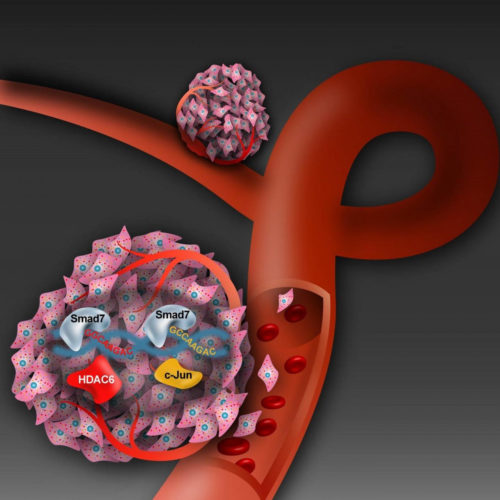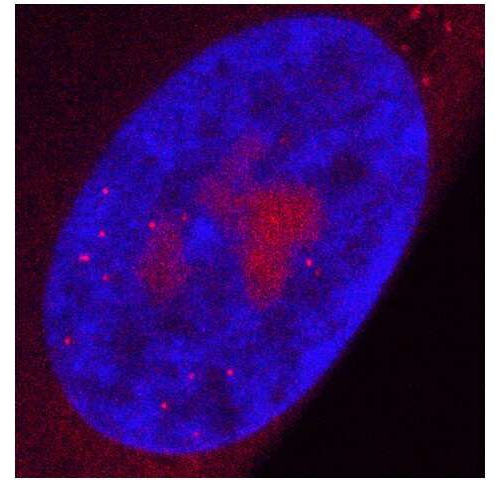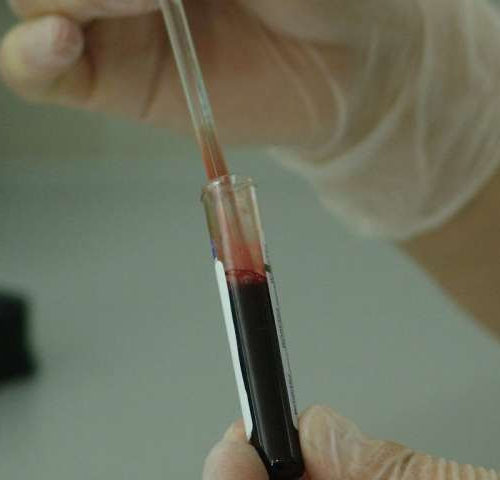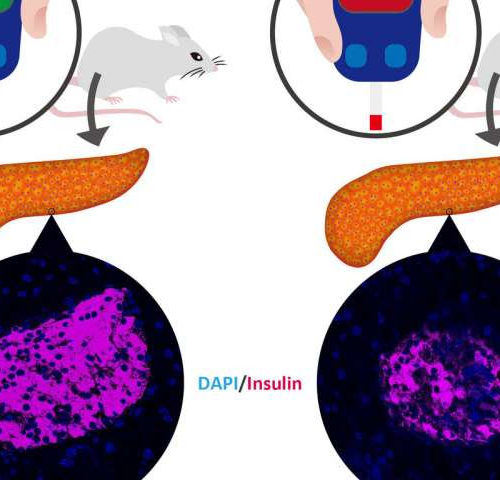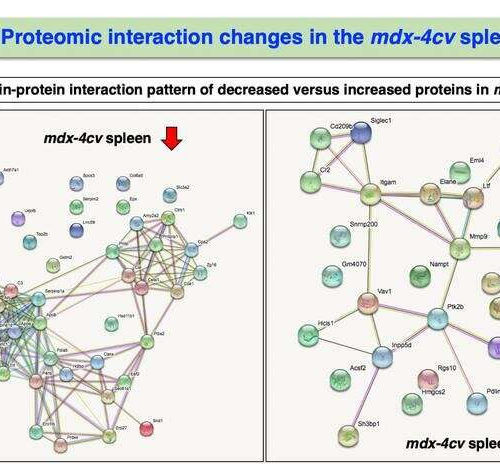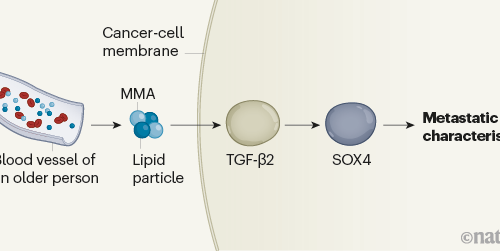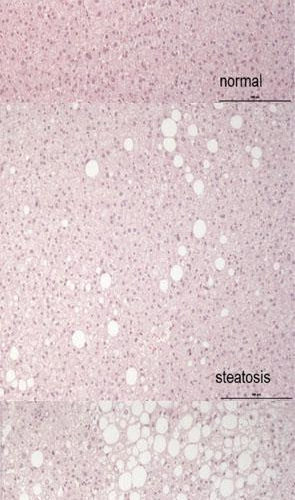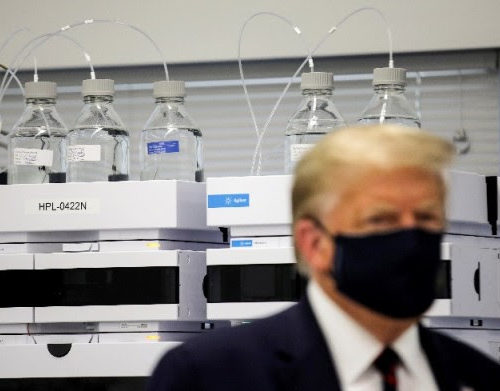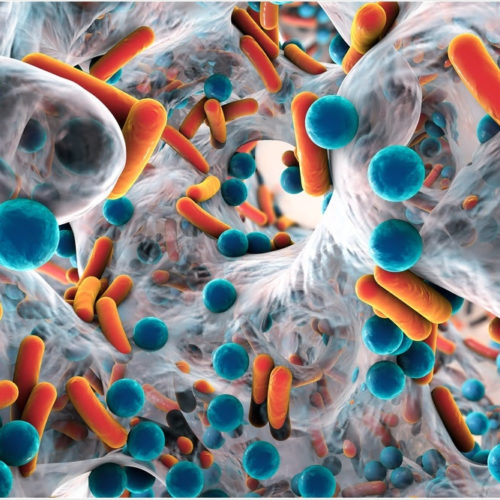UMEA UNIVERSITY ILLUSTRATION OF HOW THE PROTEIN SMAD7 ENHANCES THE DEVELOPMENT OF TUMORS BY REGULATING THE GENE EXPRESSION OF HDAC6 AND C-JUN. view more CREDIT: KEMAL AVICAN An increased awareness on a molecular level of what mechanisms prostate cancer cells use to become mobile and start spreading may in the long run provide new opportunities...
Tag: <span>Protein</span>
RNA quality control system goes awry in frontotemporal lobar degeneration
by Osaka University Researchers at Osaka University have identified a fault in the RNA quality control system of cells that leads to the haywire production of toxic proteins in frontotemporal lobar degeneration and amyotrophic lateral sclerosis (FTLD/ALS). Their new study, published in the EMBO Journal, shows that an abnormality of the C9orf72 gene produces toxic...
Scientists use blood test to predict who is likely to develop psychotic disorders
by RCSI Scientists have discovered that testing the levels of certain proteins in blood samples can predict whether a person at risk of psychosis is likely to develop a psychotic disorder years later. The study is published in the current edition of JAMA Psychiatry and was led by researchers from RCSI University of Medicine and...
A surprising protein player in diabetes
by Okinawa Institute of Science and Technology A protein that’s common throughout the body plays a key role in regulating glucose levels, says new research conducted in the Cell Signal Unit at the Okinawa Institute of Science and Technology Graduate University (OIST) and Riken Center of Integrative Medical Sciences. Called CNOT3, this protein was found...
‘Crosstalk’ between muscle and spleen in Duchenne muscular dystrophy
by University of Bonn The figure shows an overview of the potential protein-protein interaction patterns at reduced (left) and increased (right) protein concentrations in the spleen of Duchenne mice. Credit: Maynooth University Duchenne muscular dystrophy (DMD) is the most common muscle disease in children and is passed on by X-linked recessive inheritance. Characteristic is a...
Molecules in the blood of older people promote cancer spread
A molecule produced by the metabolism of proteins and fats has been found to accumulate in the blood of older people, and to endow cancer cells with the ability to spread from one site in the body to others. As we get older, the risk that we will develop cancer increases, because we accumulate genetic...
How protein protects against fatty liver
DEUTSCHES ZENTRUM FUER DIABETESFORSCHUNG DZD MICROSCOPIC IMAGES OF LIVER BIOPSIES OF THREE INDIVIDUALS WITH DIFFERENT DEGREES OF LIVER FAT ACCUMULATION view more CREDIT: DIFE Non-alcoholic fatty liver disease is the most common chronic liver disease in the world, with sometimes life-threatening consequences. A high-protein, calorie-reduced diet can cause the harmful liver fat to melt away...
Bill Gates-Funded Novavax COVID-19 Vaccine Begins Mid-Stage Trial; Can it Beat Russia’s Sputnik V?
A new leading US-based COVID-19 vaccine is set to begin its 2nd phase of testing in South Africa. The NVX‑CoV2373, made by Novavax biotechnology company, has seen improving the immune system and stimulating antibodies inside the patient. One of the major benefactors of the drug is the Bill & Melinda Gates Foundation. Here’s what it...
Deciphering the largest CRISPR system
Interview conducted by Emily Henderson, B.Sc. Professor Guillermo Montoya spoke to News-Medical on his research that involved visualizing the largest and most complex CRISPR system, which could have potential applications in biomedical diagnostics. What provoked your research into CRISPR? My interest in protein-DNA interactions and genome editing started a while ago when I collaborated with...
Study shows frequently used serology test may not detect antibodies that could confirm protection against reinfection of COVID-19
SARS-CoV-2 antibody serology assays developed by MD Anderson researchers accurately detect neutralizing antibodies UNIVERSITY OF TEXAS M. D. ANDERSON CANCER CENTER RAGHU KALLURI, M.D., PH.D. view more CREDIT: THE UNIVERSITY OF TEXAS MD ANDERSON CANCER CENTER HOUSTON — Two different types of detectable antibody responses in SARS-CoV-2 (COVID-19) tell very different stories and may indicate...

